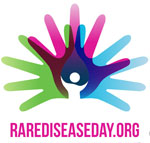Rare disease fundraising had its moment in the sun in the summer of 2014. That’s when the ALS Ice Bucket Challenge went viral! (We wrote a pretty sweet guide to the Ice Bucket Challenge and what it means for nonprofits.) Years later, National Rare Disease Day is a powerful reminder that funding for rare disease research is still desperately needed.
The Ice Bucket Challenge’s success proves that rare disease fundraising can be effective. The challenge challenge raised $115 million for The ALS Association in just a few months. That money funded research and services for people living with Lou Gehrig’s disease. Fundraising for rare disease research has a powerful effect on peoples’ lives!
Here’s a look at the background of rare disease fundraising and how you can help.
So What IS a Rare Disease?
Rare diseases result from genetics, infections, or exposure to dangerous materials. (Think diseases like mesothelioma, which is caused by asbestos exposure.) There are over 7,000 individually-classified rare diseases that affect about 300 million people around the world. About half of those 300 million people are children.
But each of those individual diseases affects only a small number of people. That makes it hard to fund research that could lead to a cure.
Why Is Rare Disease Fundraising So Important?
Living with a rare disease is difficult, and that’s putting it lightly! Because funding for rare diseases is limited, costs for patients with rare diseases tend to be very high. Since rare diseases are so uncommon, patients often require many doctor visits and extensive testing before they get a diagnosis.
In addition to paying for all those visits, patients are faced with paying for prescription drugs. Those tend to be very expensive! Managing a rare disease is time-consuming, which means many patients may have to quit their jobs or retire. Those who are able to work must often take extensive time off.
As a patient’s disease progresses, treatment becomes even more expensive. Often, patients require caretakers to help manage their health. Patients’ often schedule their lives around doctors’ visits and other appointments. Those appointments often require visiting expensive specialists.
Rare disease fundraising dollars directly impact those patients’ lives. Finding more affordable meds and treatments drives down patient cost. Money is also used to offset patients’ expenses, which makes balancing life and work less stressful. And funding put toward research may someday find cures for many diseases.
Why Is Rare Disease Fundraising So Important?
In addition to the fact that rare diseases tend to affect only small groups of people, doctors, patients, and rare disease-focused nonprofits face other challenges.
Pharmaceutical companies develop and research drugs. But pharmaceutical companies also need to appease their stakeholders. That means they spend most of their time and resources developing drugs that are widely marketable. Since rare diseases affect relatively small numbers of people, the drugs used to treat them are in low demand. “Orphan drugs,” which are drugs that treat only one rare disease, account for only 7.9% of money spent on developing and manufacturing drugs.
Lack of funding also leads to delayed diagnoses. Doctors are often unable to easily diagnose rare diseases. When patients are diagnosed, poor funding makes accessing care and treatment very difficult.
Lack of funding is worsened by other factors, too. Since rare diseases affect relatively few people, few patients are available to participate in studies and trials of different treatments. Those who are able to participate are easily exhausted by aggressive testing. Limited research means limited resources, which means doctors have a hard time developing treatment plans for diagnosed patients.
Tips for Rare Disease Fundraising
Whether you’re a nonprofit focused on rare disease research or a club or individual who wants to help raise money, here are some tips that will help you:
Use Rare Disease Days to Gain Attention
2018’s Rare Disease Day is “research” themed. Center your messaging on how important it is to fund research that could cure diseases! Participating in online conversations about Rare Disease Day gives you a valuable opportunity to spread the word about how rare diseases (or one in particular) affect patients.
Develop and Share Your Story
People donate to causes that inspire them. And you know what inspires people? Stories.
Share your story about how rare disease affects you. Use hashtags like #ShowYourRare to gain more attention. In addition to using general hashtags, search X for hashtags related to specific diseases.
Host an Event
One of the biggest hurdles faced by rare disease fundraising professionals is a lack of awareness about a particular disease. Hosting an event is an excellent way to start conversations about rare diseases. Whether you’re a nonprofit hosting a gala or an individual sharing your story with a small group, getting the face-to-face interactions afforded by events is powerful. Want some examples? Here’s a list of events other organizations are running.
Check Out This List of Rare Disease Fundraising Ideas
The National Organization for Rare Disorders put together an A-Z guide of different fundraising ideas. (Youcan download it right here.) Large organizations can host Bowl-A-Thons or organize a matching gifts campaign. Smaller organizations like clubs or associations can try coin drives or a bake sale. Individuals can get in on the fundraising with activities like babysitting or doing odd jobs in return for donations.
Remember Rare Disease Fundraising All Year
Rare Disease Day is only one day a year. But patients with those diseases live with them all year! Whether you’re a big organization or an individual on a mission, you have two powerful tools at your disposal. You have your fundraising efforts and your voice! Make a difference year-round by raising money, raising awareness, and advocating for people living with rare diseases.
Learn more about Rare Disease Day at RareDiseaseDay.org








